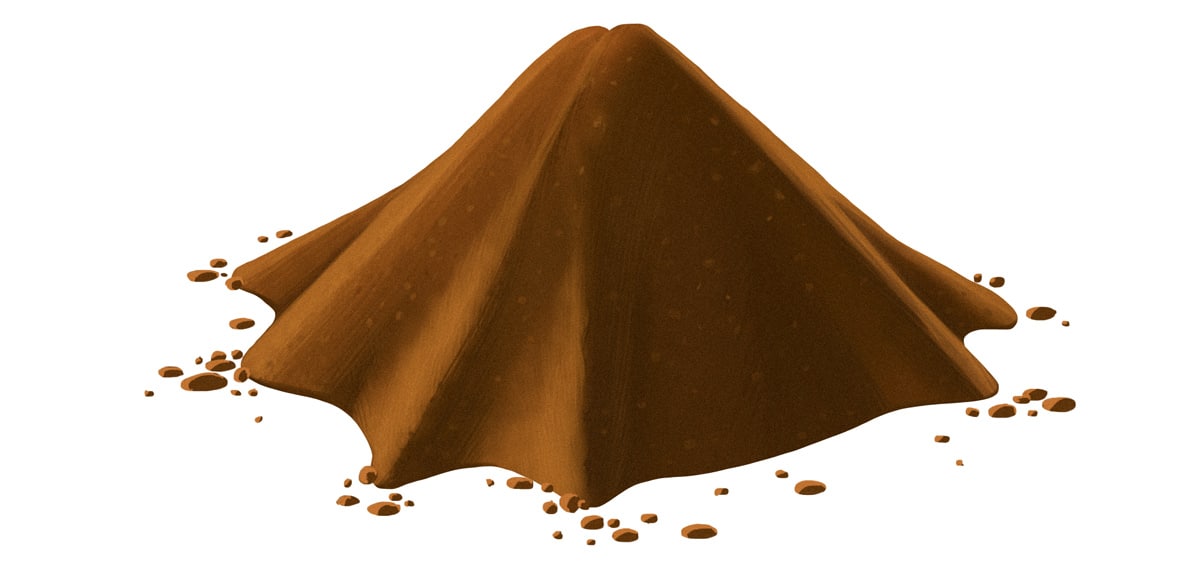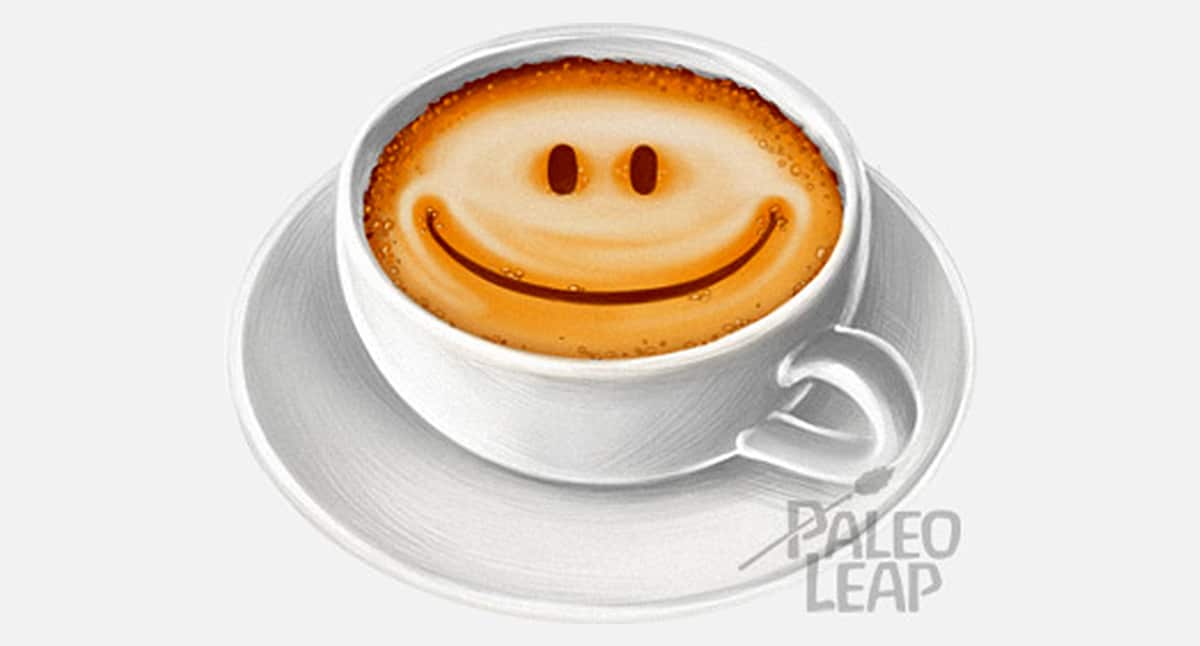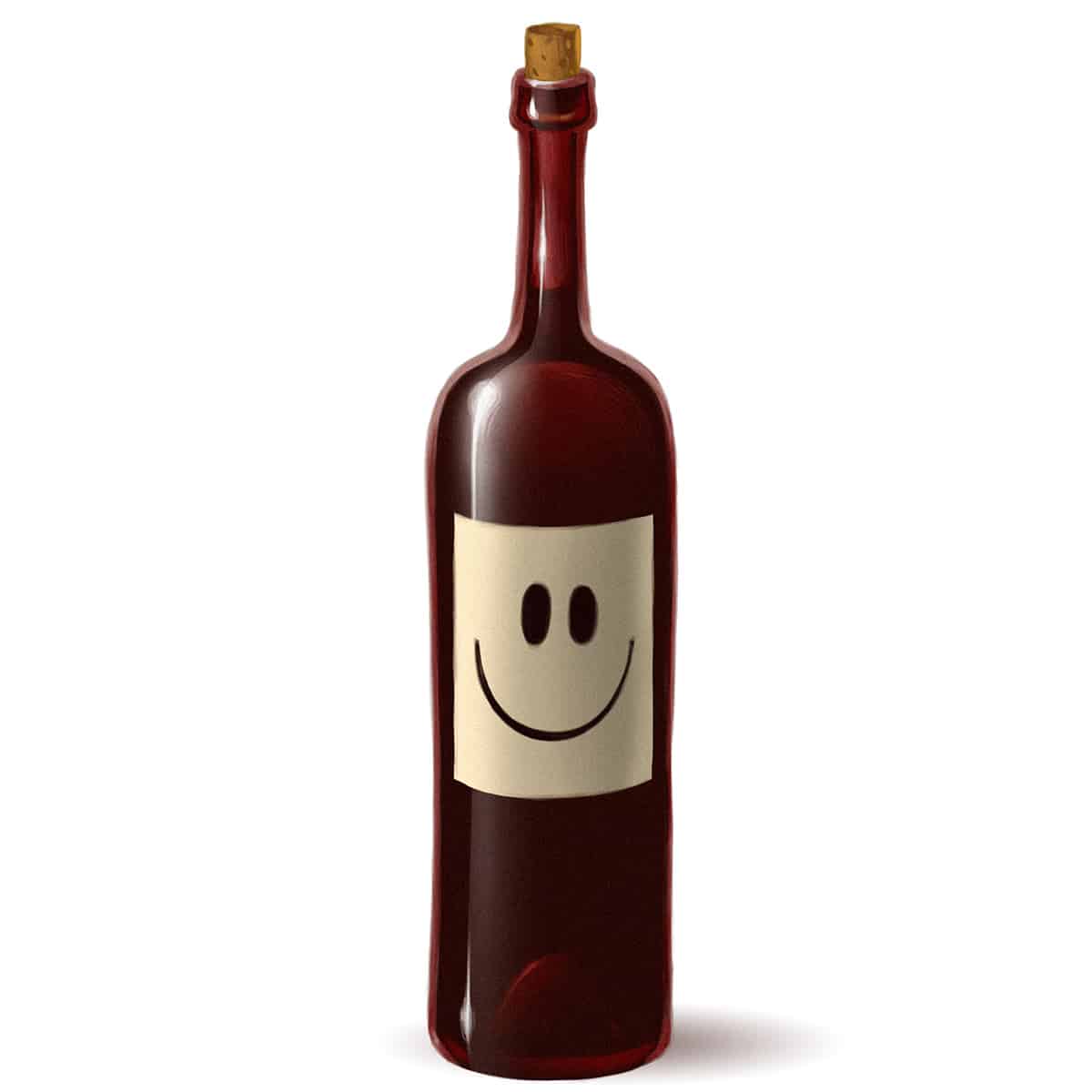Chocolate, coffee and alcohol are indulgences that are often enjoyed by people on a Paleo diet, but a lot of people wonder if those food choices are "Paleo" or not. In the true sense of whether our Paleolithic ancestors enjoyed them, the answer is almost always no, but the real question we should ask ourselves is whether they are healthy when consumed in moderation.
In this article, I'll try to expose the facts about these indulgences in terms of pros and cons and you'll then be able to decide for yourself if having them sporadically is a good idea or not. Stay aware that the pros and cons defined here are generalities that should apply to most healthy people, but that everybody usually responds differently to these foods and that the way these foods make you feel is a better way to decide to have them or not in your diet.
Of course, the big advantage in incorporating either one of these foods occasionally is probably not from the possible positive health effects, but more for the enjoyment and diversity it brings. They're often a great way to enjoy something different or a taste you used to enjoy in your previous diet, but without the damaging, inflammatory and toxic effects of some other food choices like grains, legumes, vegetable seed oils or sugar.
Chocolate

Chocolate is the product of fermented and processed cocoa beans (nibs), which are the seeds of the cacao tree. Cocoa solids and cocoa butter are the two main ingredients taken from the fatty cocoa bean. Cocoa solids are used mainly to prepare dark chocolate along with some cocoa butter and cocoa butter on its own is mainly used to prepare white chocolate.
Varying amounts of sugar and flavorings are often added to chocolate to improve its palatability as cocoa solids on their own are quite bitter. Chocolate connoisseurs and health savvy people though tend to appreciate the taste of chocolate on its own and prefer choosing a chocolate made with a high ratio of chocolate solids, without much added sugar.
Cheap preparations of chocolate and milk solids, known as milk chocolate, are widely popular, but are not of interest here as they are most often loaded with sugar and milk solids and are therefore a bad choice.
Pros of chocolate consumption
- Dark chocolate is a good source of iron, magnesium, copper and manganese.
- Dark chocolate is usually low or very low in sugar.
- It can be used effectively to fill a craving for sweet foods.
- It is a source of antioxidants and can help repair free radical damage.
- Cocoa butter on its own is a healthy fat as it's highly saturated and low in polyunsaturated fat. It features a mild chocolate taste and is great to prepare healthy desserts.
Cons of chocolate consumption
- Chocolate is high in phytic acid, which binds to minerals like calcium, iron and magnesium and makes them unavailable to the body.
- Even very dark chocolate usually contains some sugar, which is a toxin if consumed in high amount.
- Many chocolate preparations contain soy lecithin as an emulsifying agent. The amounts are usually very low though.
- Some chocolates could potentially be cross-contaminated with gluten grains.
- Many chocolates across the world are produced by people who are exploited and working in very bad conditions.
- Some people can't control themselves when eating sweet foods and chocolate can be a trigger for an unhealthy sugar binge.
- Chocolate contains oxalates, which inhibit calcium absorption and can contribute to the formation of kidney stones. Keep in mind though that spinach, beets and parsley all have higher concentrations of oxalates than cocoa nibs.
Best choices

When it comes to chocolate, as discussed earlier, the darker is usually the better. Try to go with a dark chocolate made from at least 70% cocoa solids or a white chocolate low in sugar.
Also choose a chocolate that hasn't come in contact with any gluten containing grains, and a chocolate produced organically by people working under fair conditions.
Raw cocoa nibs can also be enjoyed on their own for those who like the bitter taste. Cocoa powder can be sprinkled over fruits or used as a spice in meat stews.
Coffee
Coffee is a brewed drink prepared from roasted coffee beans, which are really the seed of the coffee plant. It's of Ethiopian origin and is now enjoyed all around the world as the third most popular drink after water and tea.
Coffee contains many psychotropic compounds as a means of protection for the plant. It has a stimulating effect mainly from its caffeine content and this is where dependency and withdrawal problems can emerge. Many people in Western societies rely on coffee for energy to start the day as they lack sleep and are chronically stressed. This creates an unhealthy energy debt and an addiction to coffee often manifested as grumpiness and fatigue when coffee is not consumed.
Many studies have shown benefits from moderate coffee consumption over no coffee at all, but many have shown just about the opposite for other health markers so it's really a mixed bag. The reaction to coffee is usually very different from person to person and some people seem to have no problem with it while others will release unhealthy levels of cortisol and become over-stimulated and dependent.
I have a personal bias against coffee consumption from my own experiences and many people seem to benefit from cutting it completely, at least for a while. It seems to me that sporadic coffee consumption, instead of having it every morning, would be a better idea. If you feel that you need coffee to start the day, you've become dependent on it and should cut it out, at least until you no longer depend on its stimulating effect.
It also seems to be a beverage that should be consumed regularly only by people who have all their ducks in a row (diet, sleep, stress management, physical activity). To many people, coffee is absolutely delicious and a great way to stay on track with a Paleo diet without indulging in other unhealthy choices.
Here are more specific reported or studied pros and cons of consuming coffee regularly or sporadically:
Pros of coffee consumption
- It improves cognitive performance, reaction time and short term recall.
- Coffee stimulates peristalsis and can help those who suffer from constipation.
- According to the latest studies on the subject, moderate coffee consumption seems to be protective against cardiovascular disease.
- Coffee contains beneficial antioxidants, methylpyridinium being the most well known one.
- Coffee seems to offer protection to the liver and has been found to reduce the incidence of liver cancer.
Cons of coffee consumption
- Caffeine can trigger the release of unhealthy levels of cortisol in some people. Chronically elevated cortisol levels are bad news for a multitude of reasons. Think weight-gain, disturbed sleep patterns, and depressed immune system.
- Coffee hinders iron absorption because of its tannin content. It can therefore further exacerbate iron deficiency.
- Regular coffee consumption seems to decrease insulin sensitivity, which can translate to weight gain and increased risk of developing type 2 diabetes. Studies have mixed results about the insulin desensitizing effects of coffee, but the most coherent ones make it clear that the effect is negative.
- Many people believe that coffee is a diuretic, which means that it makes you lose free water and can therefore lead to dehydration and electrolyte imbalances. Studies have shown though that, in the long term, coffee doesn't have a diuretic effect after you've become used to it. Drinking coffee only very sporadically could still bring about the diuretic effects since the body would lose its habituation to the effect.
- Coffee irritates the tissues of the gastrointestinal tract and can exacerbate those with ulcers, IBS, gastritis or other such gastrointestinal disorders.
Best choices

Many people who have problems with regular coffee consumption report that they fair much better with only decaffeinated. In my opinion, as the main problems in coffee come from caffeine, the main stimulant in coffee, decaffeinated coffee should prove to be a wise choice in the long-term.
Decaffeinated still contains some amounts of caffeine, but this is very limited compared to regular coffee. Look for naturally decaffeinated or Swiss water processed as some brands use chemical solvents to remove the caffeine content of coffee beans.
Alcohol
What is commonly known as "drinking" alcohol is composed of ethanol, which is a flammable and colorless liquid that is often the product of sugar or starch fermentation. It's a psychoactive drug with a well known depressant effect and is the original and first recreational drug.
There are 3 categories of alcoholic beverages: wines, beers and spirits. Wines and beers are the direct product of sugar or starch fermentation from plants like grapes in the case of most wines and grains like barley or wheat in the case of most beers. Barley contains gluten proteins. Spirits, for their part, are the product of a fermentation followed by a distillation, which is why their alcohol content is much higher. Spirits often are the product of grain fermentation, but the distillation process eliminates any residues or proteins from grains which make them completely gluten-free.
Unlike chocolate or coffee, alcohol has probably been consumed by some of our ancestors, although only very sporadically. It wouldn't be unusual, for example, to consume some alcohol by eating fruits that started to ferment. In that sense, wine is probably the closest form of alcoholic beverage that our bodies are used to dealing with.
Pros of alcohol consumption
- Moderate alcohol consumption is a good way to wind down, relax and have a good time in a social environment.
- Alcohol is associated with a lower risk of cardiovascular disease.
- Moderate alcohol consumption improves insulin sensitivity.
- Many studies have found positive health benefits from moderate alcohol consumption over none at all. Many of those studies are epidemiological in nature and the results can't be taken as proven facts, but they are still a good indication.
- Alcohol may reduce the risk of infection with Helicobacter pylori, the bacteria that causes ulcers.
Cons of alcohol consumption
- Alcohol, like fructose, is a hepatotoxin (a toxin for the liver). In excess, it causes damage to the liver and can lead to alcoholic liver disease. Studies have shown though that alcohol becomes particularly damaging to the liver when a high amount of polyunsaturated fat is consumed. Paleo is already a very low polyunsaturated fat diet which makes the diet protective, to a certain extent, from the damage of alcohol on the liver.
- Obviously, alcohol is a drug that causes drunkenness and loss of inhibitions, coordination and fine motor skills. This can mean all sorts of trouble, from accidents to inappropriate behaviors.
- Alcohol being a drug, addictive behaviors are not rare and many people can't keep their alcohol consumption in normal amounts. Excessive alcohol consumption causes numerous health and social problems.
- Alcohol acts as a diuretic and can cause dehydration and electrolyte imbalances.
Best choices

Most beers are out of the question as they contain proteins and residues from the grains used in the fermentation process, which is often barley, a gluten-containing grain. Of course, gluten-free beers can be an option to enjoy beer.
In my opinion though, wines are probably the best option to enjoy some alcohol. Not only are our bodies probably adapted to the level of alcohol found in them, red wine is also a source of antioxidants like resveratrol.
The second best option after wines would be pure spirits as they don't contain any toxic grains or added sugar. Of course, their alcohol content is usually very high so a little goes a long way. Some people have no problem drinking wine, but can't seem to control themselves with spirits because of the higher alcohol content.
Try to stay away from sugared cocktails or spirits and keep your alcohol consumption low and sporadic. If you find yourself not able to control your drinking, it's better to refrain from it completely.
Conclusion
Most of the foods discussed here are not unhealthy per se, but they have a shorter dose response curve where excess consumption is, and that's where most of the problems or toxicity can happen. Some, like coffee and alcohol, easily become addictive and can be hard to consume moderately.
If you enjoy these foods, if you are not allergic to them, if they help you relax and kick your heels off and if you can consume them only sporadically without excess, I see no problem in having them. They can be part of a modern Paleo diet.





Leave a Reply